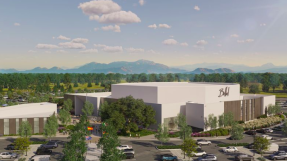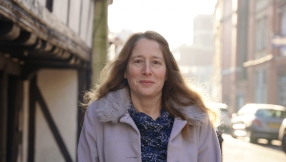
Two out of three members of the Church of England in Britain will before long have a Muslim neighbour, according to the first Muslim to address the General Synod of the Church of England.
Fuad Nahdi, executive director of Radical Middle Way, founding editor of Q-News and a member of the Archbishop of Canterbury's listening initiative on Christian-Muslim relations between 2001 and 2004, said his presence in the Synod would help Muslims stand shoulder-to-shoulder against the forces that would threaten shared humanity.
"For the haters and those consumed by anger and wickedness, this occasion is both threatening and unsettling. Many would not want us to share the truth about the rich history of Christianity and Islam."
The day after the synod enacted the legislation to consecrate women bishops, Mr Nahdi, born in Kenya, told the gathering of the Church's governing body that followers of the two religions should find out more about each other's religions to help them live in peace together.
Mr Nahdi said: "The vast majority of the Muslim community in this country are paralysed by what is going on. They are looking for prophetic action and they are finding none. What is going on is totally incomprehensible. It questions a lot of things.
"The pressure that is being put, indirectly, particularly on our young people to try and explain things for which they are not [and] never were able to say or do anything [about] thousands of miles away, it makes the weaker ones among them react in different ways.
"One of them would be to be frustrated, to be reactionary, to find somebody to blame rather than look at the situation in a cool and calculated way. But the most awful way is to get engaged in anger. It is anger which they talk about and anger makes logic."
He condemned actions done in the name of extremism, fanaticism and idiocy.
"We must share the example about coexistence. We must show compassion. But above all things we must take away ignorance and must fight ignorance. Most importantly we must also have faith, and faith lies in prayer."
Before his address, in a blog post for the Church of England, he said it was a blessing and an honour to address the synod.
He revealed that he is recovering from a long bout of debilitating illness during which he was examining his ambitions for the future. "If I can, somehow to be involved in reconciling hearts and people. That would make me happy."
He said violence was a betrayal of basic humanity. "In violence we forget who we are. The nature of the beast that surrounds us is beyond comprehension and puts all of us to shame. For people of faith and principles this is a time for introspection and deep reflection."
The issue was not too much religion but too little good religion, he said.
"Our interdependent existence must be at the back of our minds, at all time. Soon, two out of every three members of the Church will have a Muslim neighbour. The need to educate our flocks on the proprieties of co-existence and the embracing of difference is a top priority."
The invitation to Mr Nahdi was criticised on the Gatestone Institute blog.
Mr Nahdi was however defended by the conservative blogger Archbishop Cranmer who said he was not an "activist" for anything other than peaceful subsistence and liberal accommodation.
Cranmer added: "He cultivates a landscape of understanding and sharing... He confronts what it is to be young, British and Muslim. He shows there is life beyond beards, scarves and halal meat. He inspires confidence that you can build Islam in the west from all the local ingredients. You do not have to include political or theological burdens from traditional parts of the Muslim world."
Mr Nahdi was also among the speakers at a General Synod panel on violence against minorities in Syria and Iraq.
He said at that session that he would enter the synod in the same way he would enter the home of Jesus of Nazareth: "In awe and wonderment."
He said the persecution of Christians was unacceptable. "The Muslims have borne the brunt of these fanatics. Tens of thousands have died and will continue to die unless we do the right things.... Every Muslim I know condemns what is going on."
In a question to the panel the Rev Angus Macleay, a conservative evangelical from Sevenoaks, Kent, said: "How can we find better ways to learn the ways of Lord Jesus Christ from the persecuted church so we can say For me to live is Christ?"
He was answered by Bishop Angaelos of the Coptic Orthodox Church who said: "I would love to take credit for being a brave Christian. Christ gives grace to us according to our need in that situation." He described the paradox between having faith and placing trust in chariots and horses. "First we should place our trust in God. The worst thing a radical can do to you is not to kill you but make you hate them, because that touches your soul. Paul said his chains had made him more bold to speak."













